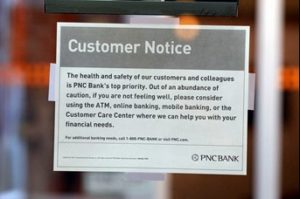
March 27, 2020 – By Erin Arvedlund

But file your taxes ASAP if you’re owed a refund. Otherwise, it’s a good time to defer federal and state income tax payments that were supposed to be due April 15 until the new deadline, July 15. You can put off filing and paying, and not pay any interest or penalties.
You can also defer your first quarter 2020 federal estimated income tax installment until the new deadline as well, interest- and penalty-free.
YOU CAN NEGOTIATE DEBT PAYMENTS
For consumer loans, it’s a good time to request a break in paying off any debt. Many lenders are granting deferred payments under favorable terms for up to three months upon request. This includes mortgages, lines of credit, auto loans, and other types of loans.
For business loans, many lenders have developed programs to provide relief through debt payment deferral arrangements and working capital lines of credit. If you owe money to vendors, it’s a good idea to contact them and see if they’re willing to discuss deferred payment options.
If you have student loans, you may qualify for a delayed or reduced payment. Just remember, even though you don’t need to make payments now, interest will continue to accrue, and you will have to make up these amounts eventually, according to the Consumer Financial Protection Bureau. Contact your student loan servicer to find out more about your options. If you have a federal student loan, also ask your servicer about alternative repayment plans.
STOP AUTOPAYMENTS
Check your bank statement for any auto-withdrawals. Call Comcast, Verizon, and other cellphone and cable carriers and ask if you can delay your monthly bills. Many of us put those on auto-pay with deductions out of our checking accounts — and that can suck money out too quickly.
Check what regular subscriptions you are paying for. What could you stop or put on hold? Check that your gym membership isn’t still being billed, and keep what you need (Spotify, Netflix, etc.) but suspend the others until things even out.
KEEP CASH ON HAND
If you can afford it, keep a supply of cash in the event access to banks or bank accounts is interrupted, or ATMs are not functioning or inaccessible.
A good rule of thumb — if possible — is $50 per individual in the household, plus an overall supply (separate from that) of at least $500.
“This is an unprecedented global health crisis and a great challenge to the United States. Americans are taking dramatic but necessary measures to protect the health and well-being of their families, and they must include financial readiness in their planning,” said Steve Trumble, president and CEO of American Consumer Credit Counseling.
“A financial emergency kit is crucial in this kind of crisis. It means gathering critical documents, records, contact information, and emergency resources in one place to ensure financial preparedness for an unexpected event or dislocation.”
Financial counselors at ACCC are directing Americans to online resources such as the Ready.gov section on financial preparedness, and the downloadable EFFAK (Emergency Financial First Aid Kit) guide.
WORK WITH HOUSING AND CREDIT COUNSELORS
These professionals provide advice for little or no cost, and will work with you to discuss your situation, evaluate options, and help you negotiate with your lenders.
- HUD-Approved Housing Counselors. U.S. Department of Housing and Urban Development (HUD)-approved housing counselors can discuss options with you if you’re having trouble paying your mortgage loan or reverse mortgage loan. This may also include forbearance or a modified payment program.
- Credit Counselors. Reputable credit counseling organizations are generally nonprofit organizations that can advise you on your money and debts, and help you with a budget. Some may also help you negotiate with creditors. There are specific questions to ask to help you find a credit counseling organization to work with.
